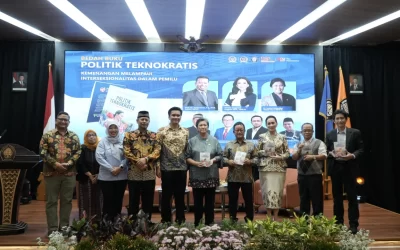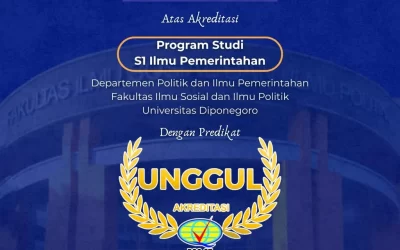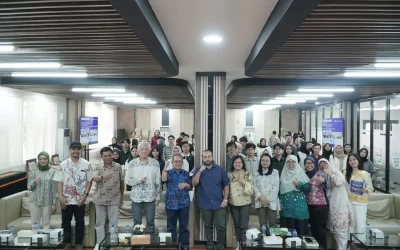Banjarsari, Pekalongan (27/07) –Tolerance serves as the cornerstone of harmonious coexistence, fostering an environment of mutual respect and acceptance amidst diversity. Specifically, religious tolerance stands as a beacon of hope, enabling individuals of varying beliefs to live alongside each other and collaborate peacefully. Embracing and cultivating religious tolerance in regions that share common faiths holds significant and extraordinary meaning. While Indonesia is inherently a country marked by religious diversity. In certain areas, one religion is practised by the entire populace. This scenario is evident in Banjarsari Village, where most of the community adheres to Islam, forming a homogenous religious composition. Though seemingly excessive within a religiously homogeneous community, tolerance serves as a safeguard against dogmatism and extremism.
The program was successfully conducted on July 27, 2023, from 3:00 PM to 4:00 PM, at TPQ Nurul Huda 2. It drew the participation of 26 attendees, comprising male and female students of levels 5 and 6, approximately aged between 11 and 13 years. The event commenced with introductions and a pre-test, followed by a presentation using PowerPoint. The presentation encompassed topics like the definition of tolerance and religious tolerance, official religions in Indonesia along with their places of worship, Islam and tolerance, and the three elements of tolerance: freedom to practice religion, mutual respect for beliefs, and acknowledgement of the rights of those of different faiths. Subsequently, the four crucial aspects of tolerance were elucidated, accompanied by examples of religious tolerance behaviours. It was underscored that both nationally and religiously, the practice of religious tolerance must be continuous and unconditional, transcending geographical and physical boundaries. In the world, especially in Indonesia, diversity is an absolute reality that functions as a unifying force, fostering reconciliation and securing societal harmony.
Additionally, an animated video exemplifying religious tolerance in daily life was presented. This was followed by an interactive quiz session, “cerdas cermat,” designed as a post-test activity that was enjoyable and competitive. The participants were divided into three groups, each presented with ten questions related to religious tolerance behaviours, influential religious figures, and related subjects. Afterwards, refreshments and prizes were distributed. The event culminated with a documentation session.
 In conclusion, the outcome of this event is twofold: it enriches participants’ understanding of religion and religious tolerance in Indonesia, and it enhances their sense of self-fulfilment in practising tolerance, particularly religious tolerance. The aspiration for the future is that the participants become agents of change, prioritizing tolerance and becoming contributors to the “Generasi Penuh Kasih” (Generation Full of Love), which is the outcome of the executed educational endeavour. Additionally, a continuous advocacy effort is exemplified through the provided poster (accessible via the following link), aiming to remind participants to uphold and propagate tolerance behaviours while inviting and educating others to join the movement, thereby expanding the community of “Generasi Penuh Kasih” for a future Indonesia characterized by limitless love, peace, and tolerance.
In conclusion, the outcome of this event is twofold: it enriches participants’ understanding of religion and religious tolerance in Indonesia, and it enhances their sense of self-fulfilment in practising tolerance, particularly religious tolerance. The aspiration for the future is that the participants become agents of change, prioritizing tolerance and becoming contributors to the “Generasi Penuh Kasih” (Generation Full of Love), which is the outcome of the executed educational endeavour. Additionally, a continuous advocacy effort is exemplified through the provided poster (accessible via the following link), aiming to remind participants to uphold and propagate tolerance behaviours while inviting and educating others to join the movement, thereby expanding the community of “Generasi Penuh Kasih” for a future Indonesia characterized by limitless love, peace, and tolerance.
Author: Angelina Paqita Gabriel





0 Comments